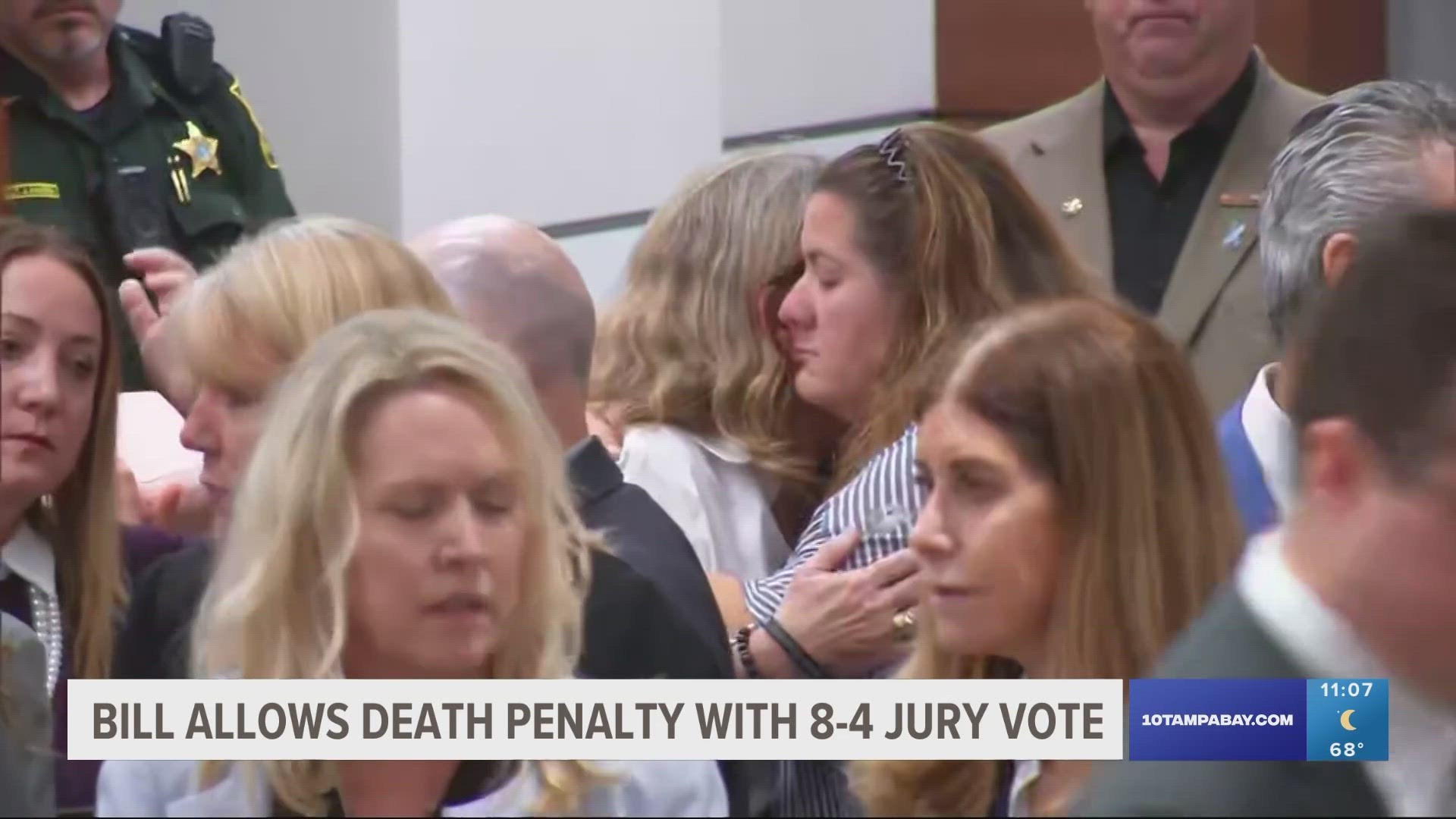PARKLAND, Fla. — Florida will soon no longer require unanimous jury recommendations for judges to impose death penalty sentences under a bill the Legislature approved Thursday.
The House passed the bill on an 80-30 vote. It now goes to Republican Gov. Ron DeSantis for final approval. It will allow the death penalty with a jury recommendation of at least 8-4 in favor of execution. DeSantis supports the proposal.
The bill was filed after the outrage over a 9-3 jury sparing Marjory Stoneman Douglas High School shooter Nikolas Cruz from capital punishment for the 2018 massacre. He instead received a life sentence with no parole.
One of the people Cruz killed was Meadow Pollack.
Her brother, Hunter Pollack, said he was shocked and disgusted by the sentencing.
"I hurt for my family, I hurt for Meadow and I hurt for my entire community because we deserved justice," he said. "And the current law that was in place failed my family and failed our community."
Hunter Pollack said the system wasn't working as it should.
"[Parkland was] as cold and calculated as a killing could get," he said. "And if that didn't lead to the death penalty, then nothing would."
Pollack said the new bill, which is expected to be signed into law, is a step in the right direction.
"It gives me a sense of hope that there will be justice for families who go through tragedies like mine have in the future," Pollack said. "It gives me joy that her death is not gone in vain."
Only three states out of the 27 that impose the death penalty do not require unanimity. Alabama allows a 10-2 decision, and Missouri and Indiana let a judge decide when there is a divided jury.
Opponents of this change argue the death penalty is immoral, expensive and risky. According to the Death Penalty Information Center, Florida leads the nation in the number of people exonerated after being sentenced to death with 30 people.
Herman Lindsey is one of those 30 exonerees.
"The jury is proven to get it wrong," Lindsey said. "I did three years altogether on the murder charge, 18 months on death row. My direct appeal was reversed. So the question is, did they understand what beyond a reasonable doubt was?"
For decades, Florida had not required unanimity in capital punishment. The state allowed a judge to impose capital punishment as long as a majority of jurors were in favor of the penalty. But in 2016, the U.S. Supreme Court threw out state law, saying it allowed judges too much discretion.
The state Legislature then passed a bill requiring a 10-2 jury recommendation, but the state Supreme Court said such recommendations should be unanimous, prompting lawmakers in 2017 to require just that.
Three years later, the state Supreme Court, with new conservative jurists appointed by DeSantis, rescinded its earlier decision and ruled that a death recommendation does not need to be unanimous. Florida’s unanimity standard has remained untouched until now.

